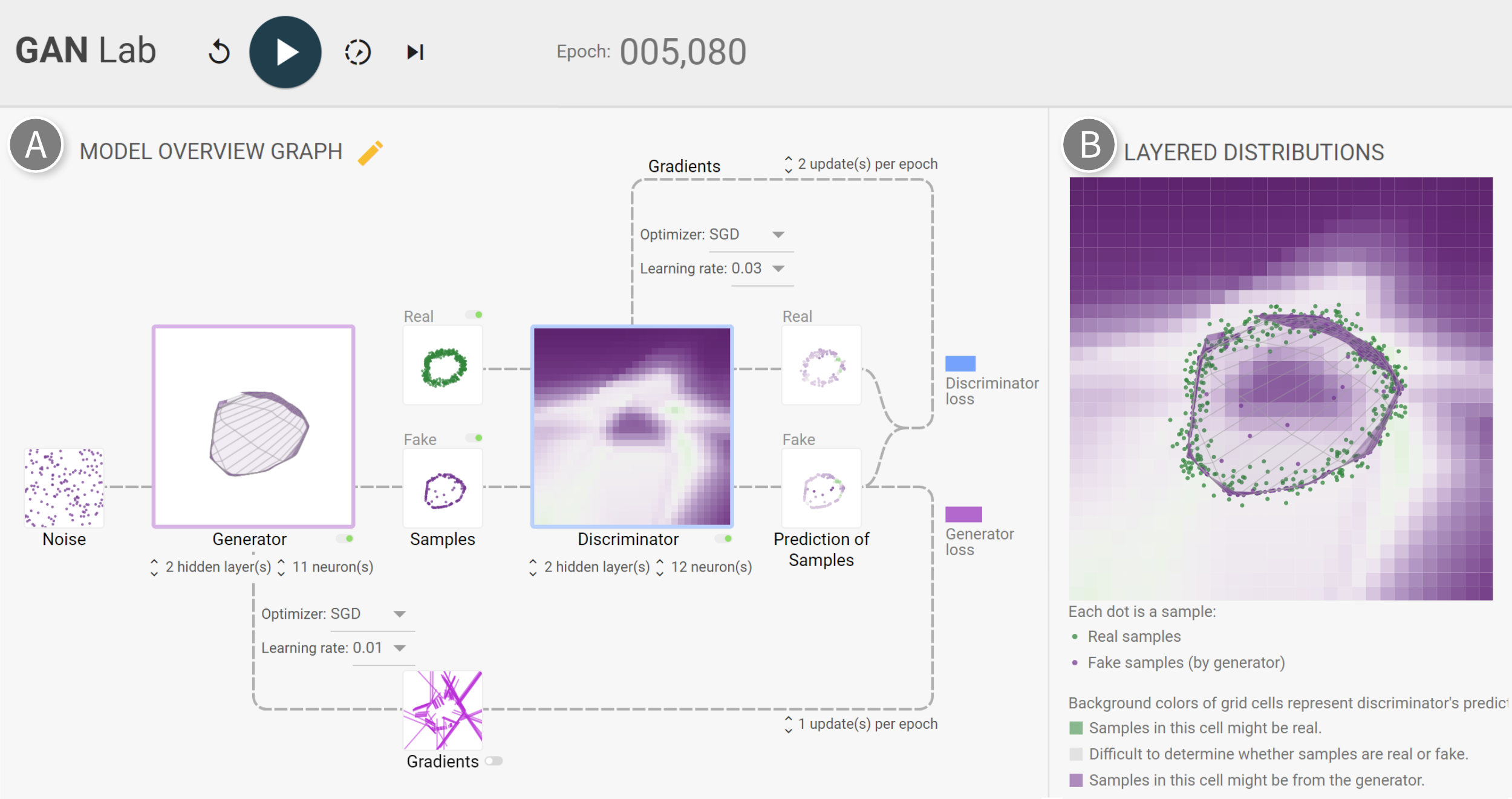By Minsuk Kahng, Nikhil Thorat, Polo Chau, Fernanda Viégas, and Martin Wattenberg
GAN Lab is a novel interactive visualization tool for anyone to learn and experiment with Generative Adversarial Networks (GANs), a popular class of complex deep learning models. With GAN Lab, you can interactively train GAN models for 2D data distributions and visualize their inner-workings, similar to TensorFlow Playground.
GAN Lab uses TensorFlow.js, an in-browser GPU-accelerated deep learning library. Everything, from model training to visualization, is implemented with JavaScript. Users only need a web browser like Chrome to run GAN Lab. Our implementation approach significantly broadens people's access to interactive tools for deep learning.
Click the following link:
https://poloclub.github.io/ganlab/
It runs on most modern web browsers. We suggest you use Google Chrome.
This section describes how you can develop GAN Lab.
Run the following commands:
$ git clone https://github.com/poloclub/ganlab.git
$ cd ganlab
$ yarn prepIt's unlikely, but you may need to install some basic JavaScript-related dependencies (e.g., yarn).
Run the following command:
$ ./scripts/watch-demo
>> Waiting for initial compile...
>> 3462522 bytes written to demo/bundle.js (2.17 seconds) at 00:00:00
>> Starting up http-server, serving ./
>> Available on:
>> http://127.0.0.1:8080
>> Hit CTRL-C to stop the serverThen visit http://localhost:8080/demo/.
The watch-demo script monitors for changes of typescript code (e.g., demo/ganlab.ts)
and compiles the code for you.
GAN Lab was created by Minsuk Kahng, Nikhil Thorat, Polo Chau, Fernanda Viégas, and Martin Wattenberg, which was the result of a research collaboration between Georgia Tech and Google Brain/PAIR. We also thank Shan Carter and Daniel Smilkov, Google Big Picture team and Google People + AI Research (PAIR), and Georgia Tech Visualization Lab for their feedback.
For more information, check out our research paper:
Minsuk Kahng, Nikhil Thorat, Polo Chau, Fernanda Viégas, and Martin Wattenberg. "GAN Lab: Understanding Complex Deep Generative Models using Interactive Visual Experimentation." IEEE Transactions on Visualization and Computer Graphics, 25(1) (VAST 2018), Jan. 2019.
